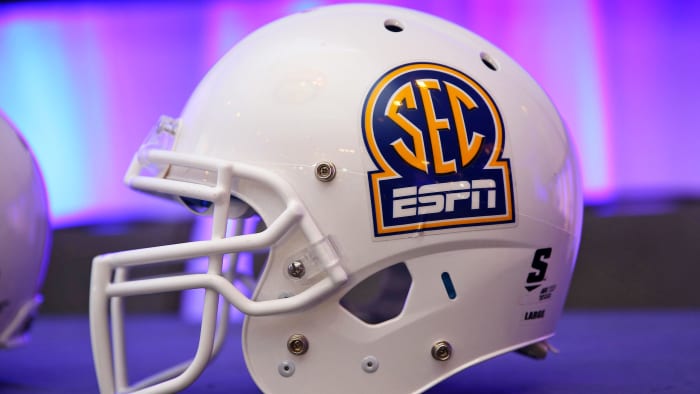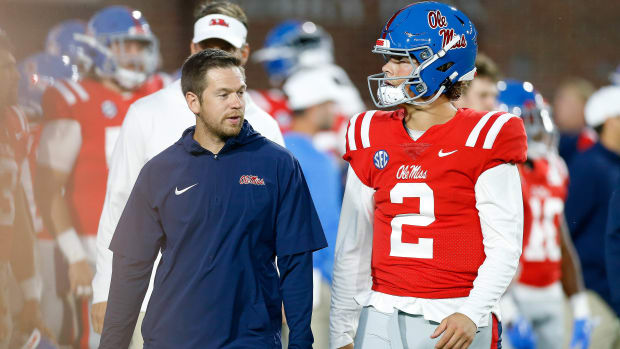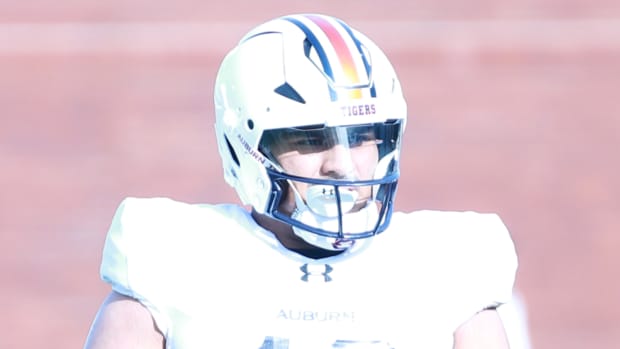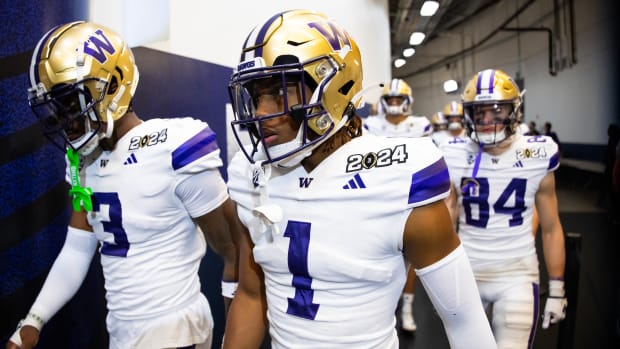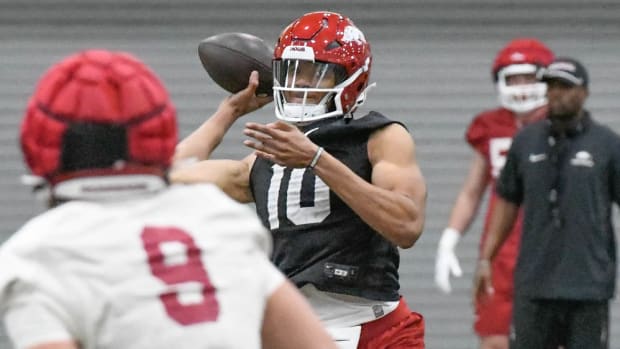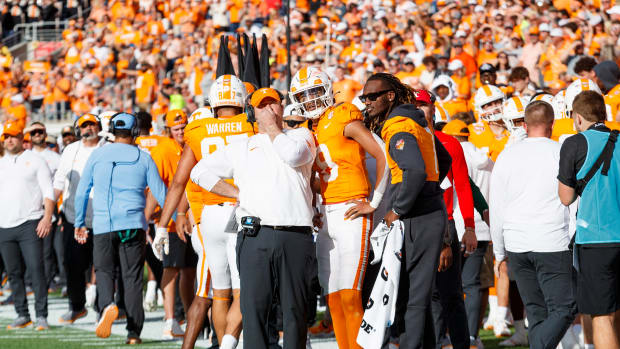SEC Leaving CBS for ABC: Inside the 10-Year Deal Starting in 2024
For years now, Southeastern Conference football has been synonymous with at least three things: rabid fan bases, championships and CBS television coverage.
Starting in 2024, the call letters identified most with the league are in for a change.
The conference has agreed to a 10-year, multimillion-dollar contract with ESPN and ABC that begins with the 2024 football season, ending what will be a near-two decades run with CBS for a heftier payout and more game flexibility.
Under the package, ESPN and ABC have rights to broadcast the league’s 15 best football matchups as well as eight marquee basketball games. ABC now has rights to the SEC football championship game, which it will air in its traditional late-afternoon slot. And starting next year, the network can broadcast one nonconference football matchup on ESPN+ with each team.
Though terms were not disclosed, ESPN’s annual fee is expected to be in the low $300 million range, according to Sports Business Journal, a considerable and expected increase from the $55 million per year that the conference receives from CBS—a bargain deal that was struck in 1996. CBS pulled out of negotiations this spring after the price tag got too high, SBJ reported.
But beyond the extra change, the SEC benefits from increased flexibility and more of a heads up on kickoff times, two significant factors in negotiations. In fact, more than half of the league’s kickoff times are expected to be assigned a time window (ie: morning/afternoon or late afternoon/evening) before the season even begins, commissioner Greg Sankey told Sports Illustrated this week.
As for flexibility, the league now has the option for its best game each week not to be locked into the 3:30 p.m. ET time slot, as was the case with CBS. While the conference will be assured a weekly 3:30 time slot on ABC, its premier matchups can shift to ABC’s prime-time window, ESPN president Jimmy Pitaro tells SI.
“A key factor contributing to our desire to get this done was scheduling flexibility and the ability to air key conference matchups on ABC or ESPN or both,” Pitaro says.
The SEC’s new deal isn’t without losses. The league loses what has been an exclusive, rewarding partnership with a network that broadcasts very few college football games. CBS and the SEC was a marriage that millions of college football fans grew old watching. Gone will be the familiar faces, like analyst Gary Danielson, and the SEC-themed music and logos.
Already, three years out, Pitaro and his staff are exploring ways to make the SEC’s premier game each week feel different.
“The commissioner and I have spoken about this,” Pitaro says. “That presentation will be distinctive and special. We have all hands on deck right now looking at this.”
They’ve got plenty of time. The SEC–CBS contract runs through the 2023 season. But there is a way for it to end sooner. The league and CBS would have to mutually agree to have ESPN buy out CBS’s final three years. Pitaro says the SEC and ESPN have discussed only 2024 and beyond because the conference is contractually bound to CBS.
Asked about the deal with CBS ending early, Sankey says, “Our focus is on fulfilling our relationship with CBS and looking forward to our future with ESPN and ABC.”
This deal was a long time coming. Sankey says he began exploring a new TV contract in December 2016, about 18 months after he replaced Mike Slive as the league’s commissioner. The two entities, ESPN and the SEC, were finalizing the plan in spring before deciding to delay the announcement on March 9 as the pandemic began.
A priority for the SEC was flexibility and the preselection of kickoff times. For years, SEC administrators and fans quibbled over kickoff-time announcements routinely coming less than two weeks before game dates. While that will remain the case with several matchups, many of them will be assigned in time windows over the summer.
“We had heard from fans and campus leaders, within the changing environment of fan attendance, having some certainty was really important,” Sankey says. “We anticipate during the summer the ability to project out more than half of our kickoff times. Even when we don’t have certainty, we have some window assignments. We narrow the range. We might move from 2:30 p.m. to 11 a.m. [CT] or 2:30 to 6 p.m., but it will stay in that range.”
The new deal will not change the conference’s philosophy on Thursday- or Friday-night games, Sankey says: There will be none. However, the week before the SEC championship, ESPN or ABC will feature an annual late-afternoon, post-Thanksgiving Friday game. The league has not determined what two teams will meet in the yearly affair. Most recently, the borderclash between Arkansas and Missouri has held that spot.
The weekly selection process of SEC games will drastically change. Traditionally, CBS gets the first pick for its 3:30 p.m. ET spot before ESPN decides on the rest of the schedule for its various channels: ESPN, ESPN2, ESPNU and SEC Network. With just one parent company involved in the selection process, multiple SEC games could be on at the same time, as is the case at times now.
“We could have a 3:30 ABC game and a game on SEC Network at 4 and a game on ESPN at 4,” Sankey says.
If the SEC-ESPN deal is worth the reported $300-plus million a year, SEC schools each stand to make about $20 million more in annual TV revenue checks starting in 2024, eclipsing the Big Ten as the richest conference in terms of annual TV cash.
